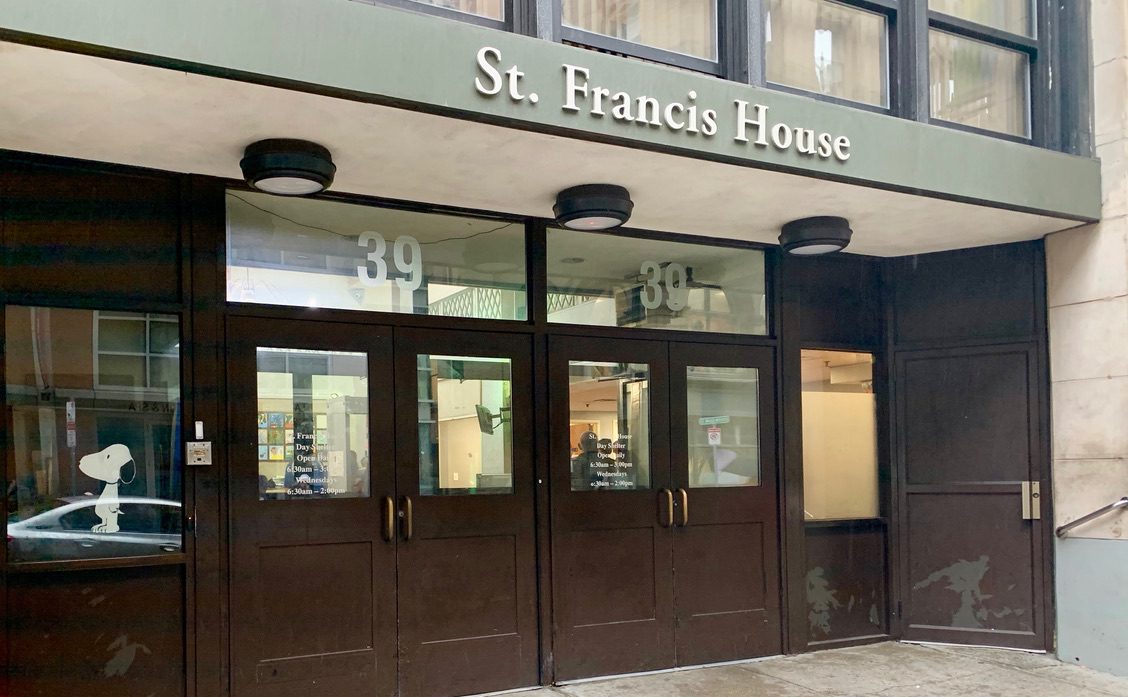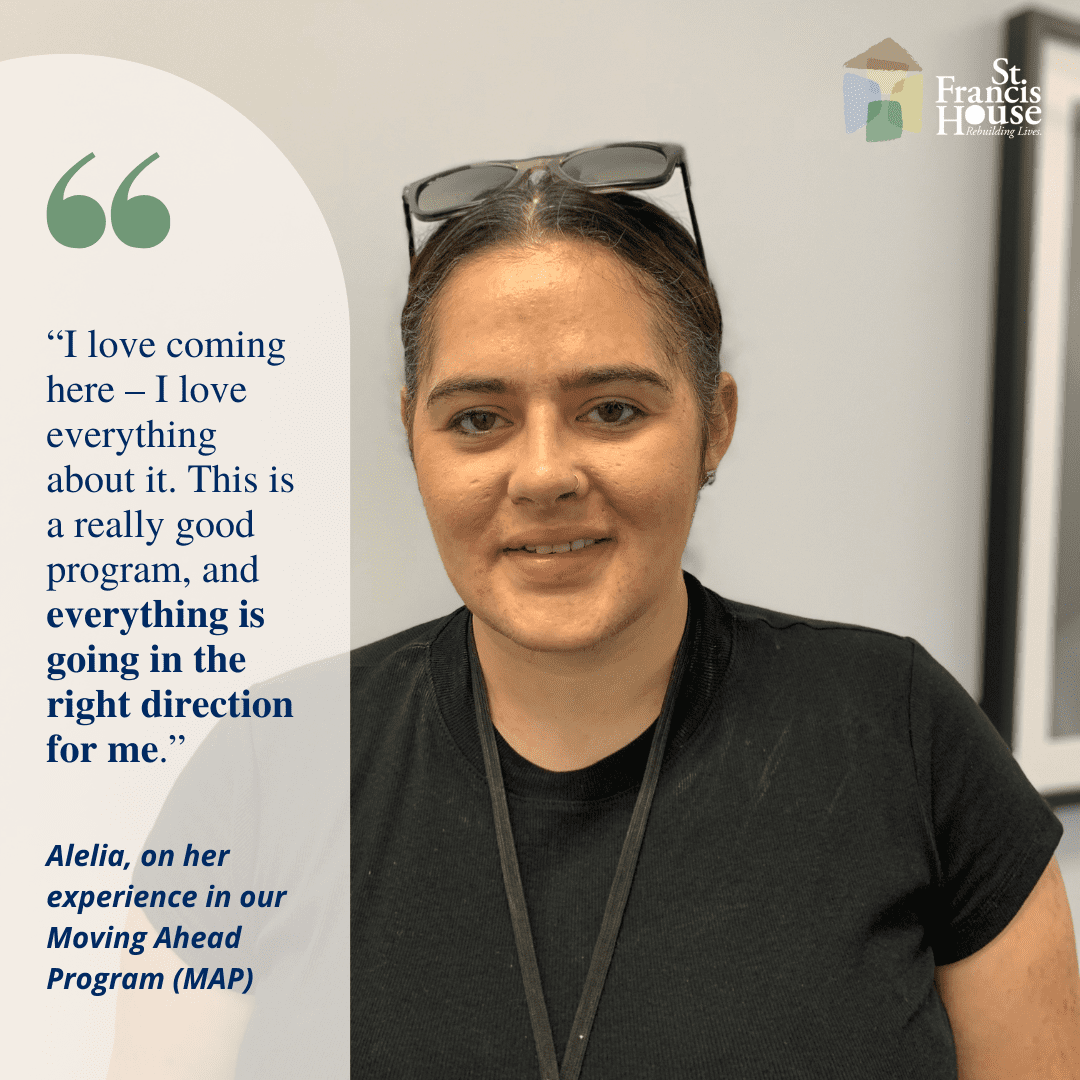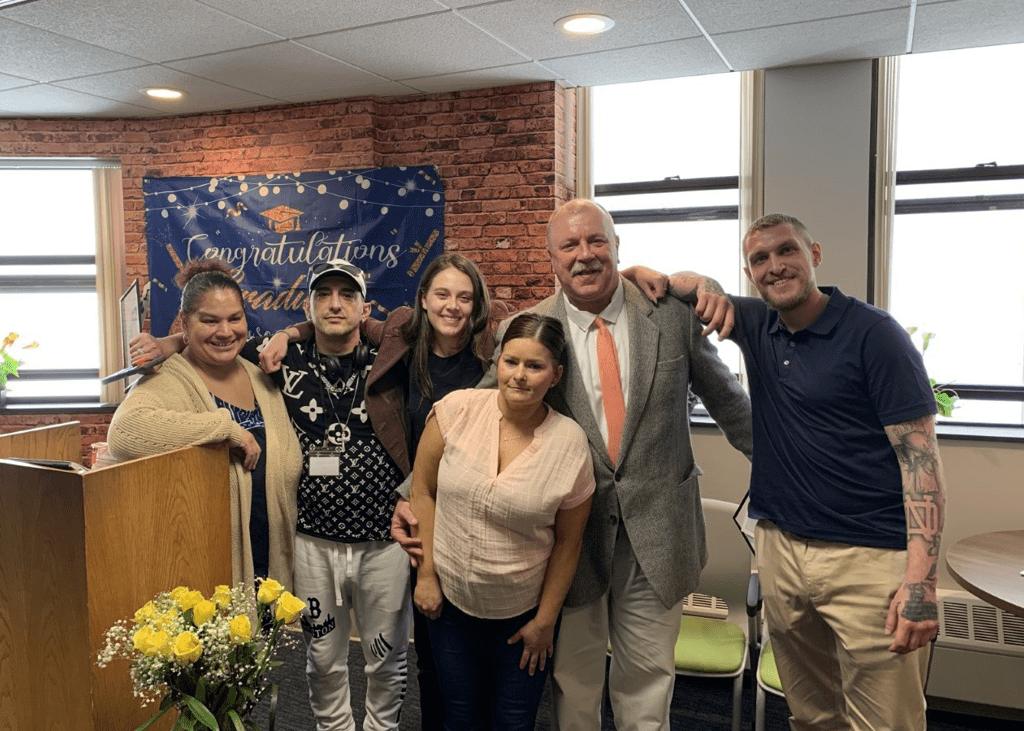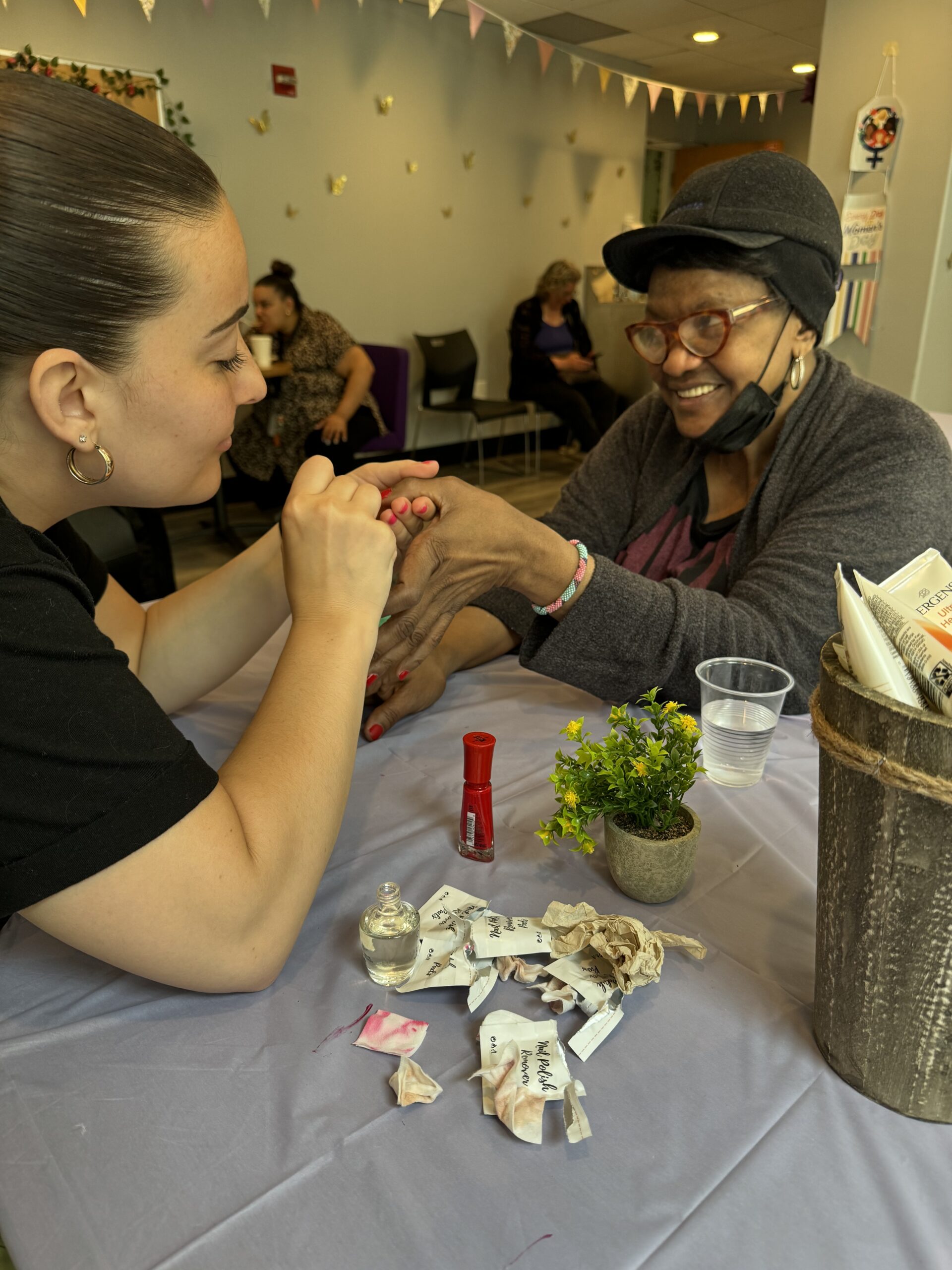
By now, we’re all aware of the opioid epidemic that is plaguing our community. At St. Francis House, we have seen up close and personal how this scourge impacts the people that we serve. As part of our mission to rebuild lives, we’re committed to doing everything we can to alleviate the impacts of this epidemic – and to help bring an end to it.
Today is August 31st, International Overdose Awareness Day, and aims to raise awareness of overdose and reduce the stigma of a drug-related death. It also acknowledges the grief felt by families and friends remembering those who have died or had a permanent injury as a result of drug overdose.
Not only are overdose rates over 30% higher for homeless individuals, but rates have continued to climb during the COVID-19 pandemic. The past couple of years, St. Francis House has been grateful to receive critical funding from RIZE Massachusetts, have a strong partnership with Boston Health Care for the Homeless Program (BHCHP) and have added valuable members to our staff with lived experience in order to support our guests with substance use disorder.
Changes we have made to our day shelter model to reduce overdoses at St. Francis House include:
- RIZE room; installed a few years ago in our atrium, a “monitoring chair” and a BHCHP nurse are available with the goal of assisting our guests who are over-sedated or otherwise feeling the effects of opioid use.
- Practice of harm reduction; our team actively works with guests to engage those who are using or addicted to substances, reduce their risk of overdose, and conduct important relationship- and trust-building activities that can lead to treatment.
- Access to support; working with BHCHP clinic on the 2nd floor of St. Francis House to increase the number of people who have access to suboxone, a medication used to treat opiate addiction.
In addition, this past year we opened our Recovery Support Center, which aids our guests in holding tight to their sobriety. Looking towards the future, we hope to explore other forms of treatment on-site.
We believe that if we very intentionally engage individuals with opiate addiction in non-judgmental ways, free of stigma, they will be less at risk of fatal overdose and far more likely to seek the treatment they need for their condition. This approach further enhances the many strengths we have in connecting with our guests and gives us additional resources to truly make a difference.



